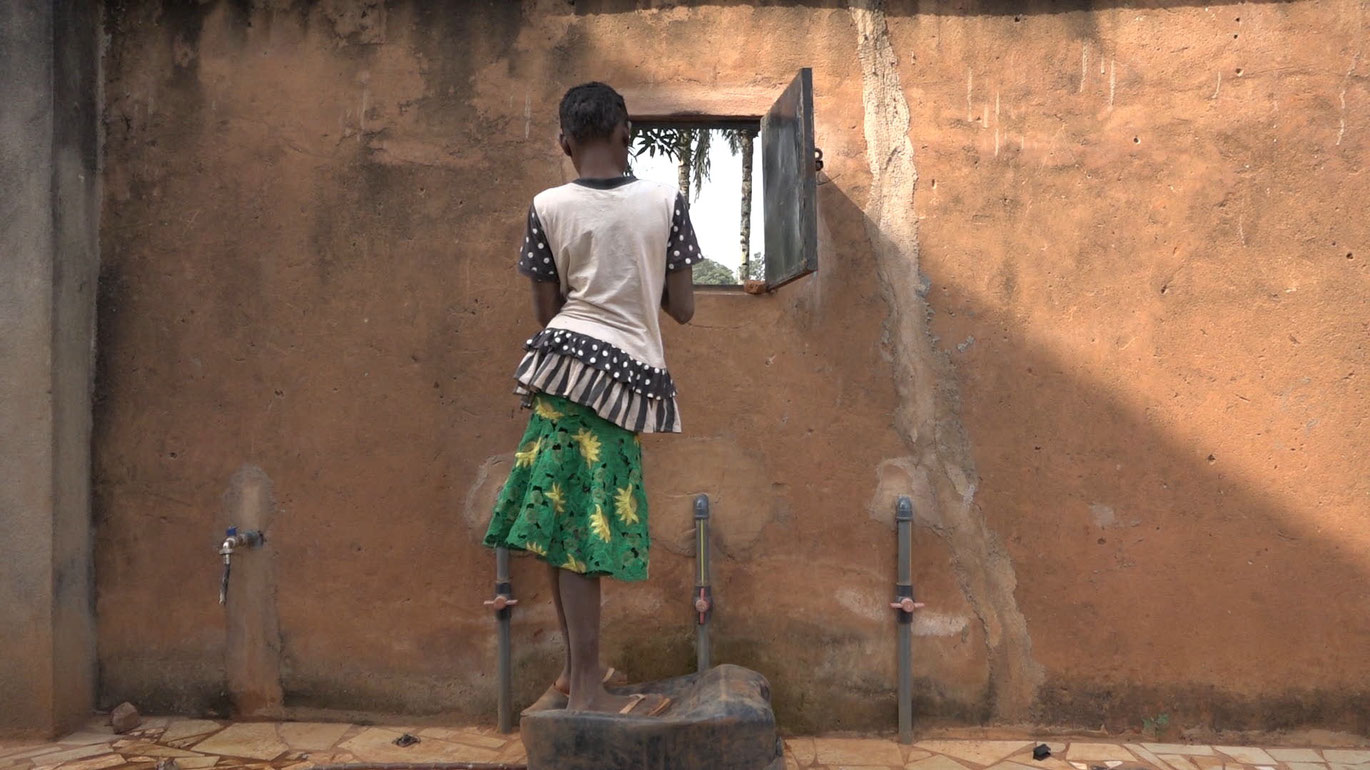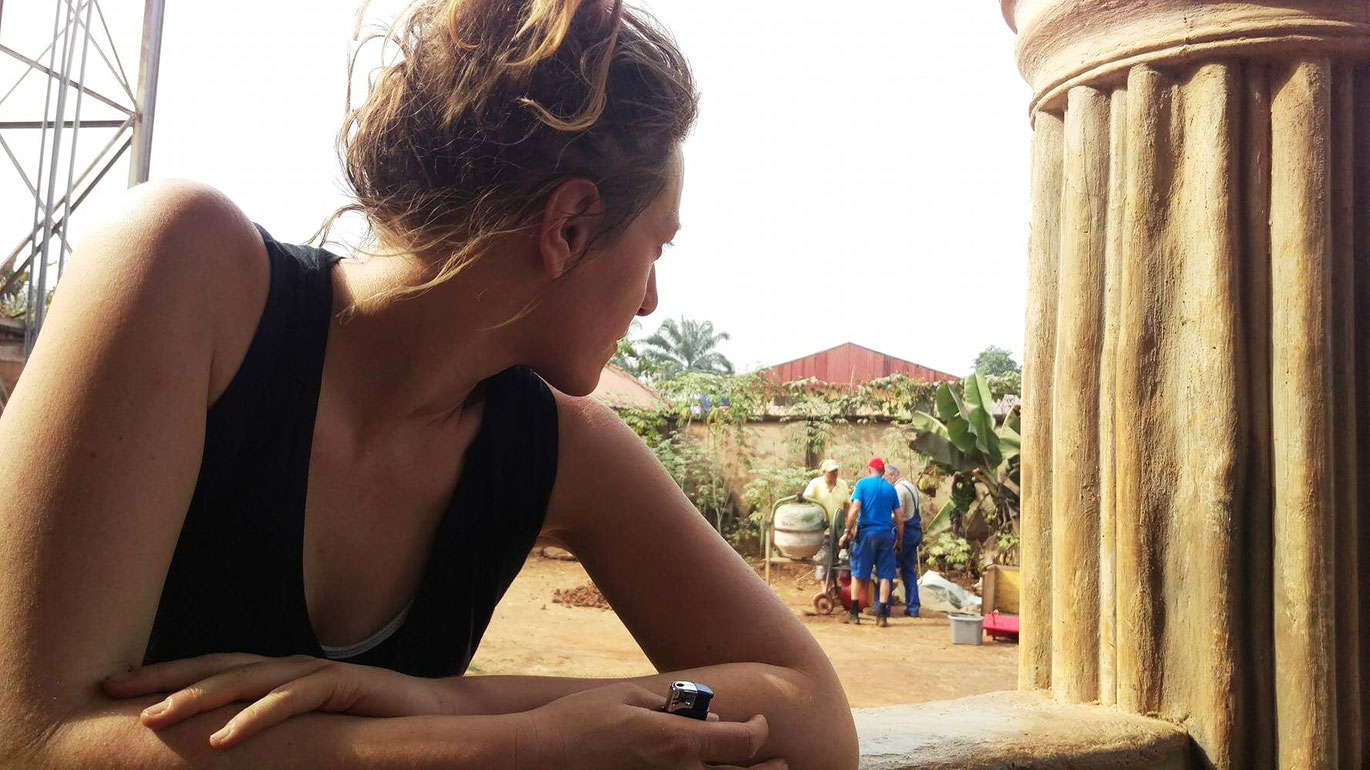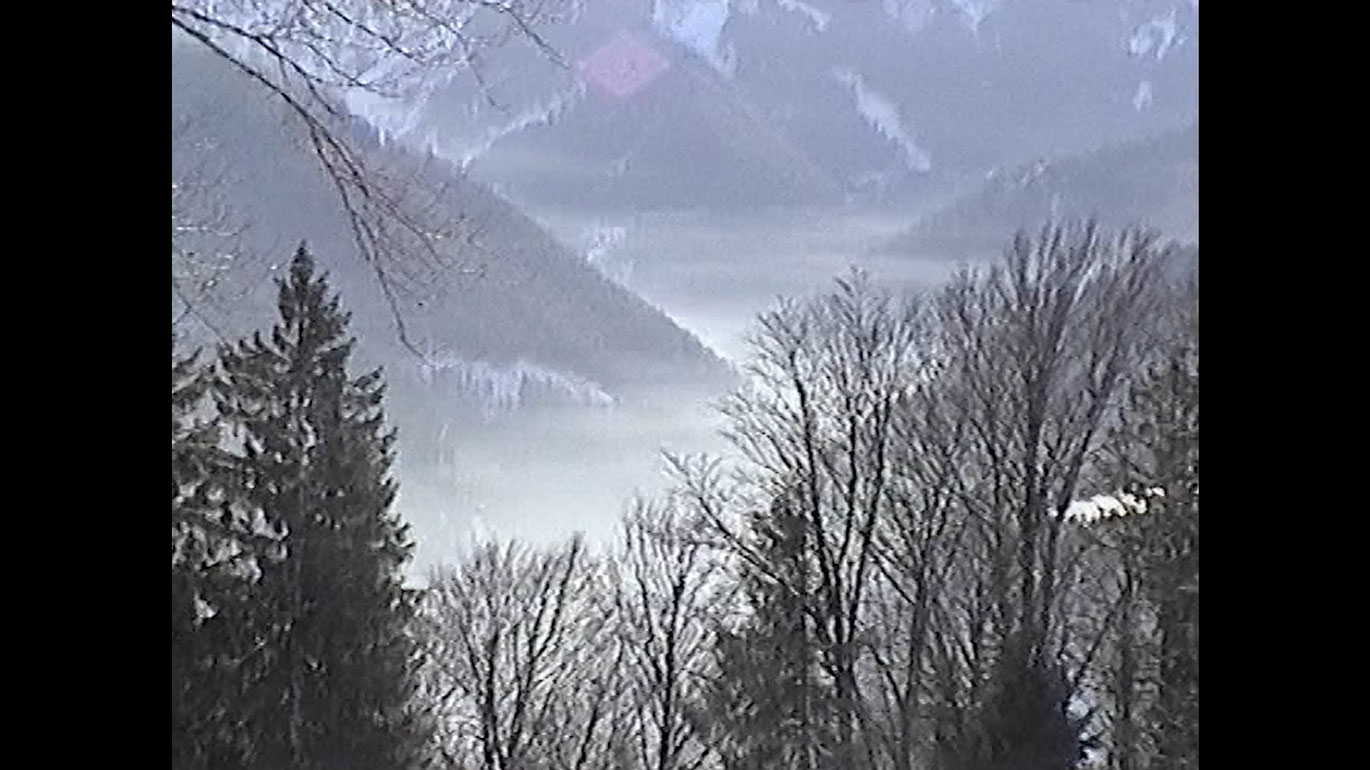RED EARTH WHITE SNOW
"There is nothing stranger in a strange land than the strangers who come to visit," we hear the voice of the director say off-screen in Nkwumeatu, located in southeastern Nigeria. Christine Moderbacher´s literally "unbelieving gaze" emulates Chinua Achebe´s book, All Things Fall Apart, first published in 1958, as she comprehends the "real" relationships and reference points to red earth and white snow in their presence.
The tractor is a symbol of technical progress and simultaneously a crucial link in the longstanding Austrian Nigerian partnership: It refuses to shift into gear, whereby well-intentioned plans for mechanical support of the harvest fall into the remote distance. At the same time, multiple relationships of dependency resound: A collective trip to the hometown of the Catholic priest Sabinus awakens long dormant childhood memories of the male connoted, elemental power called God. Daddy´s daily ever more loudly humming VH8 camera captures this spooky malaise – the only refuge that can be found is in thoughts spoken off-screen. After two long weeks, the corn has been planted and it is not only Daddy´s tractor that is packed up. The familiarly crunching snow of home covers up what was experienced, while unobtrusively obtrusive messages arrive in letters - "Please can you take us to your country? Yes? No? Please!"- and fade out on the broken clay through which the red earth shimmers.
In a deeply personal, ethnographic examination and using archival material steeped in the history of the Biafra war, this film confronts (post-)colonial and Christian domination. Western humanitarian aspirations toward modernity meet with the longings in kids´ heads, but thanks to prevailing relations of inequality, these will presumably fall silent in an unrealized future. (Doris Posch)
Translation: Eve Heller
In the 1960s, the media pictures of the Nigerian Civil War shaped the notion of a continent. As was the case for Christine Moderbacher´s father, who decades later wants to help his priest Sabinus build a Catholic school in his Nigerian hometown. Joining them: the daughter and her camera. A personal father-daughter journey, and a cinematic diary about interdependencies and the incompatibility of independence movements and Christian missionary projects. (Diagonale 2018)
Jury Statement ViZANTROP FESTIVAL 2019, Belgrade (Award)
ROTE ERDE WEISSER SCHNEE
2018
Austria
71 min
Documentary
German, English
English



